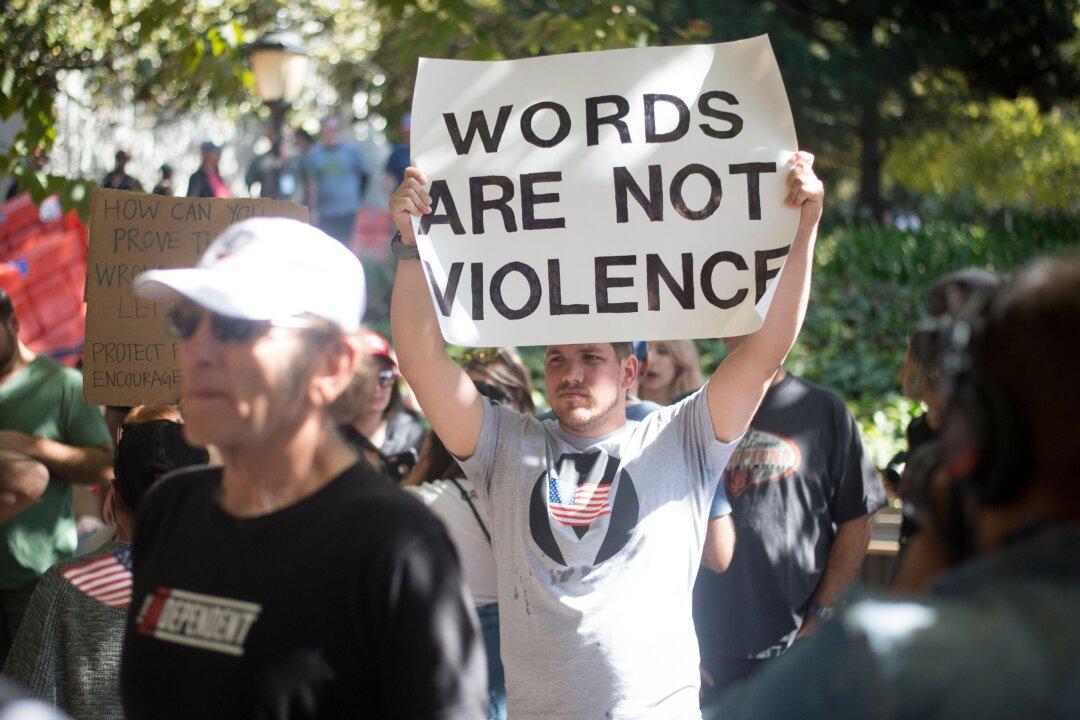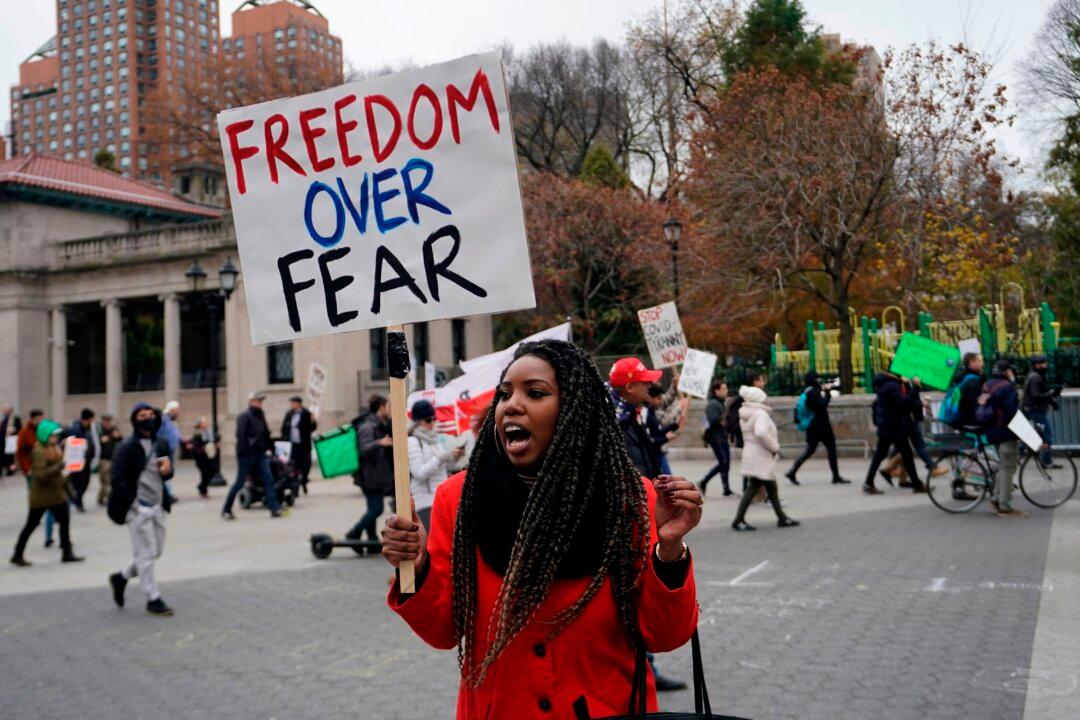Commentary
It’s not uncommon to hear claims that language is tantamount to violence, that words can cause physical harm. This concept originated in academia, taking root in the 1980s and 1990s, primarily among student activists and radical professors. Today’s campuses are littered with the consequences of this ideology.





